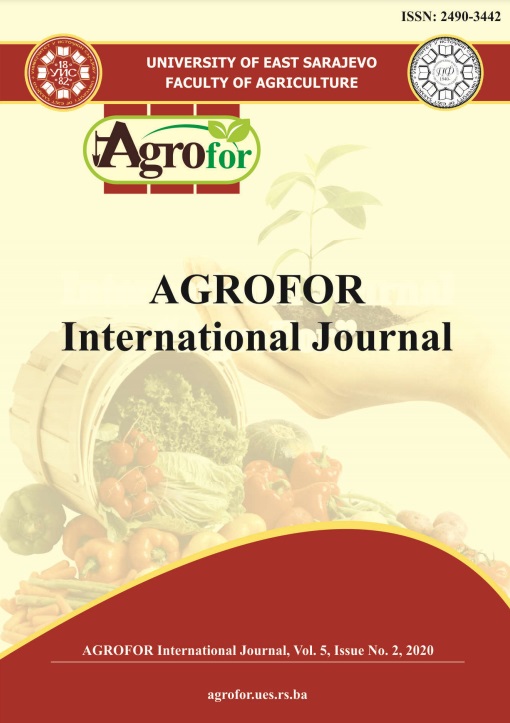ADOPTION OF WATER AND SOIL CONSERVATION PRACTICES: THEORETICAL FRAMEWORKS AND ATTITUDINAL COMPONENTS
DOI:
https://doi.org/10.7251/AGRENG2002005FAbstract
Agricultural production requires two main resources; water, as a source of life, and
soil, as a living environment. Water and soil conservation is a critical issue in areas
facing water and soil resource constraints. The purpose of this review paper is to
provide an overview on the theoretical frameworks used in the analysis of the
adoption of water and soil conservation practices. Different models and
frameworks have been used in the analysis of the acceptance and/or adoption of
new technologies and practices; these include Technology acceptance model,
Motivational model, Theory of reasoned action, theory of planned behavior,
Innovation diffusion theory and the Unified theory of acceptance and use of
technology. The Icek Ajzen’s Theory of Planned Behavior (TPB) has been used as
a conceptual framework in many studies on the factors affecting the adoption of
water and soil conservation practices. The TPB allows examining the impact of
individual factors (i.e. attitude), social norms (cf. subjective norms) and situational
factors (i.e. perceived behavioral control) on the adoption of practices. It posits that
if a person assesses the suggested behavior as positive (cf. attitude) and if he/she
thinks that others want them to perform the behavior (cf. subjective norm), these
result in a higher intention and motivation to do so. However, the TPB has some
limitations such as not considering environmental/contextual and economic factors
that may affect the individual’s intention to perform a behavior. Therefore, despite
the widespread use of the TPB model, the paper concludes that the UTAUT seems
a better model in understanding the dynamics of acceptance and adoption of water
and soil conservation practices.

